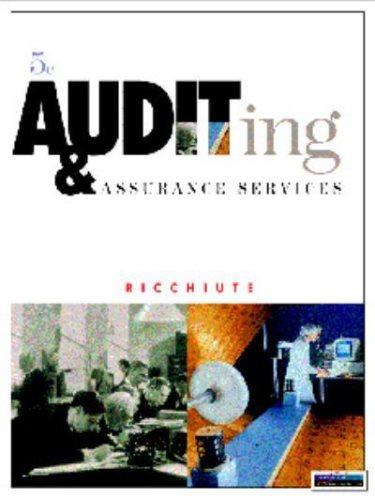Audit risk, the probability that an auditor may unknowingly fail to modify his or her opinion on
Question:
Audit risk, the probability that an auditor may unknowingly fail to modify his or her opinion on materially misstated financial statements, occurs on all audit engagements, partly because auditors do not usually test all transactions underlying an account balance and partly because of other uncertainties, such as inadequate planning and supervision.
Required:
1. Briefly describe inherent risk, control risk, and detection risk—the three component risks underlying audit risk for individual financial statement accounts.
2. Why are some financial statement accounts inherently more risky than others?
3. Explain why detection risk bears an inverse relationship to inherent and control risk.
4. Assuming inherent, control, and detection risks are judged by an auditor to be .75, .50, and .25, respectively, for Trade Accounts Receivable, what is audit risk for the account?
5. In regard to Question 4 above, assume inherent risk is revised downward to .50.
a. What is audit risk?
b. In comparison with Question 4 above, how will the new audit risk level affect the auditor's revised estimate of materiality for Trade Accounts Receivable?
Step by Step Answer:






